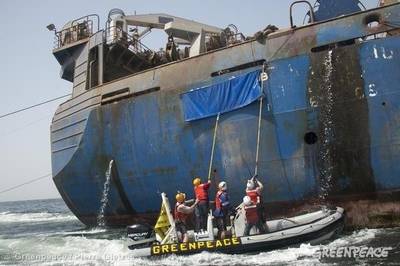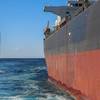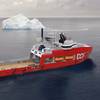Russian Trawler's Arrest: A Law of the Sea Test Case?
The Russian trawler Oleg Naydenov was recently arrested and escorted in to the Port of Dakar by Senegal navy vessels. If found guilty it faces a doubling of the usual fine, and the arrest has also sparked an appeal by African coastal nations for an opinion from the International Tribunal for the Law of the Sea.
A French military plane flying over Senegal's Exclusive Economic Zone detected some of the same vessels that had been stripped of their licences continuing to fish in these waters. Amongst them was the Oleg Naydenov, a 108 metre long Russian-flagged trawler that is no stranger to law-breaking in Senegal.
The same large fishing trawler was caught red-handed fishing illegally by the Greenpeace ship Arctic Sunrise in March 2010, and again in February 2012 . On both occasions it tried to cover its name and number to evade prosecution. The Surveillance Department of Senegal's fisheries ministry has also found it engaged in illegal actions on a number of occasions.
Small-scale fishermen in many developing countries suffer from governments that are unable or unwilling to police their waters, yet are happy to sell fishing rights to foreign industrial fleets, often pocketing a few bribes along the way. It is encouraging that Senegal looks intent on overcoming these ills.
But Senegal and other developing countries won't be able to defeat illegal, unregulated and unreported (IUU) fishing alone, nor should they be expected to. There is also an important responsibility for the flag States to control their industrial fleets when they venture into international or foreign waters.
A grouping of West African States that includes Senegal recently requested an advisory opinion from the International Tribunal for the Law of the Sea on the question how responsibilities should be shared between flag and coastal States. The arrest of the Oleg Naydenov, and Russia's reaction to it, illustrates the importance of that case.
Source: Greenpeace













